Tag: microfinance
-
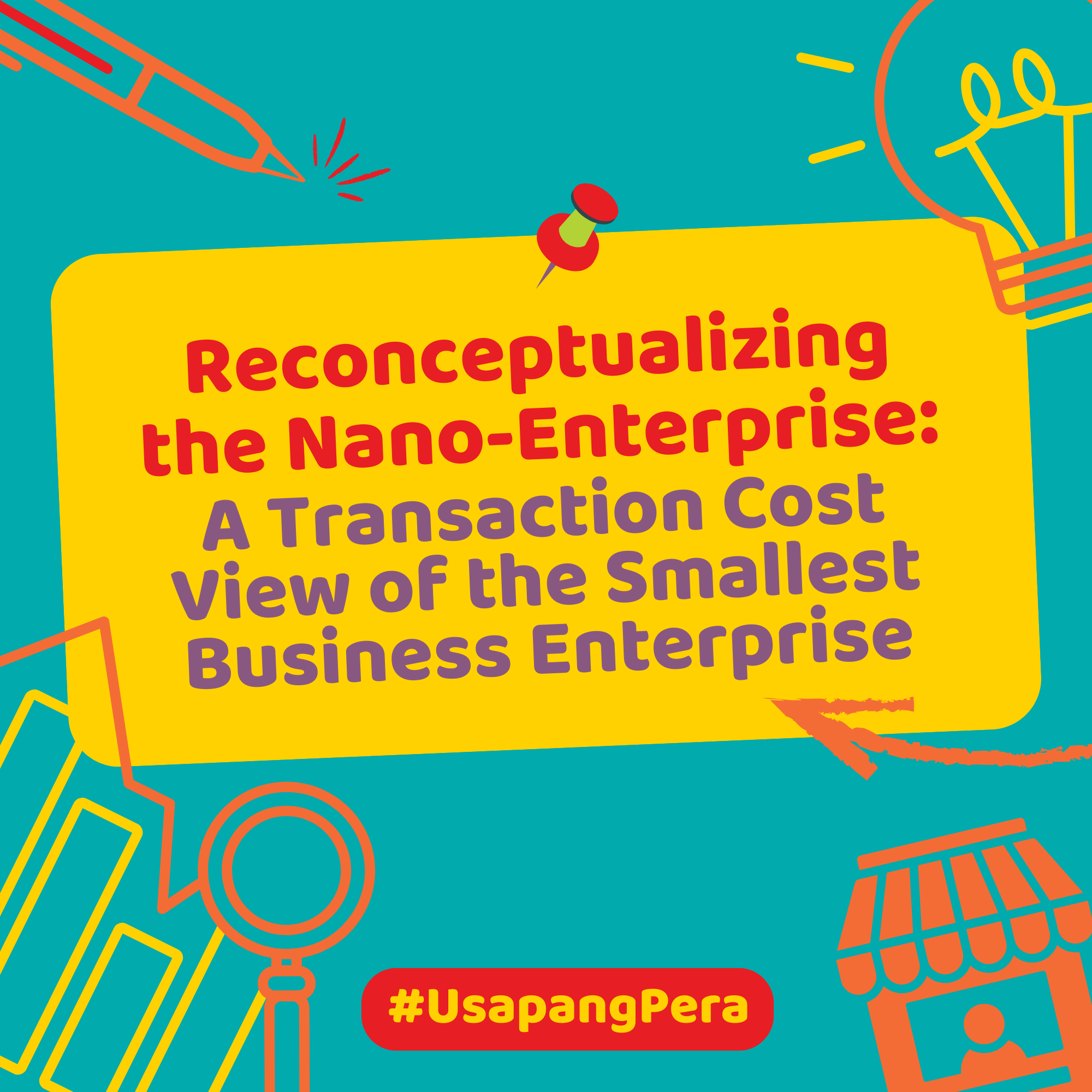
Reconceptualizing the Nano-Enterprise: A Transaction Cost View of the Smallest Business Enterprise
Roberto Nolan Galang and Mariel Vincent Rapisura (Presented at the Academy of Management on July 9, 2024 in Chicago Illinois.) ABSTRACT This exploratory study characterizes the nano-enterprise — or the single-person enterprise — as a distinct category of firms that constitutes a significant pillar for economic activity and poverty alleviation in many parts of the world,…
-
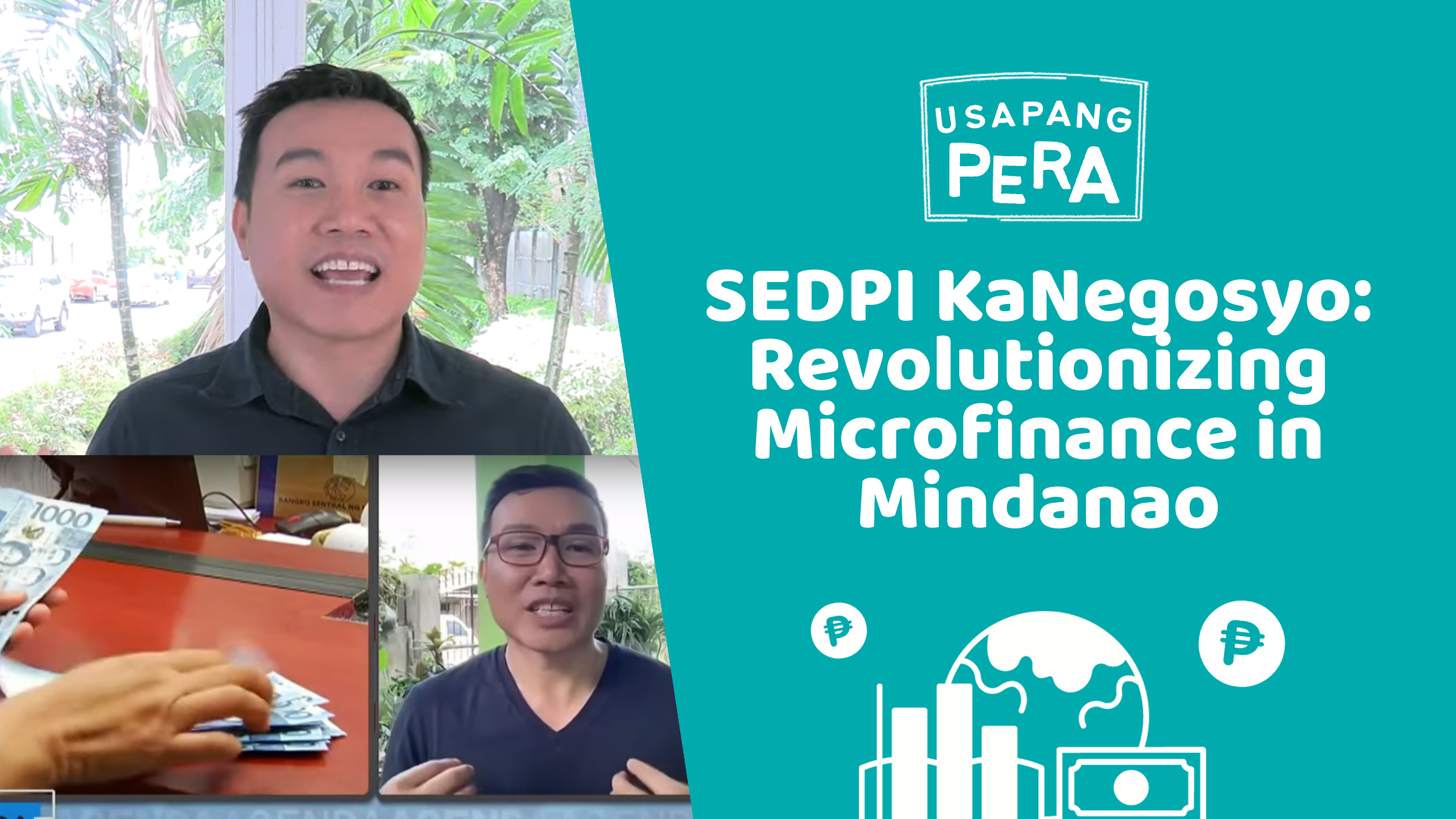
SEDPI KaNegosyo: Revolutionizing Microfinance in Mindanao
Bayugan City, Agusan del Sur – SEDPI KaNegosyo, a pioneer in microfinance, continues to set itself apart from conventional microfinance institutions with its innovative approach to financial services, particularly in the thriving communities of Mindanao. Since its inception, SEDPI KaNegosyo has been on an impressive trajectory of growth. From a modest beginning with two branches…
-

Regulatory landscape of microfinance in the Philippines: An overview
Microfinance has emerged as a critical tool for poverty alleviation and financial inclusion in the Philippines. The government has recognized its potential and has enacted several laws and regulations to promote and regulate the sector (Llanto & Fukui, 2015). This paper examines the key regulations governing microfinance in the Philippines and their implications for the…
-
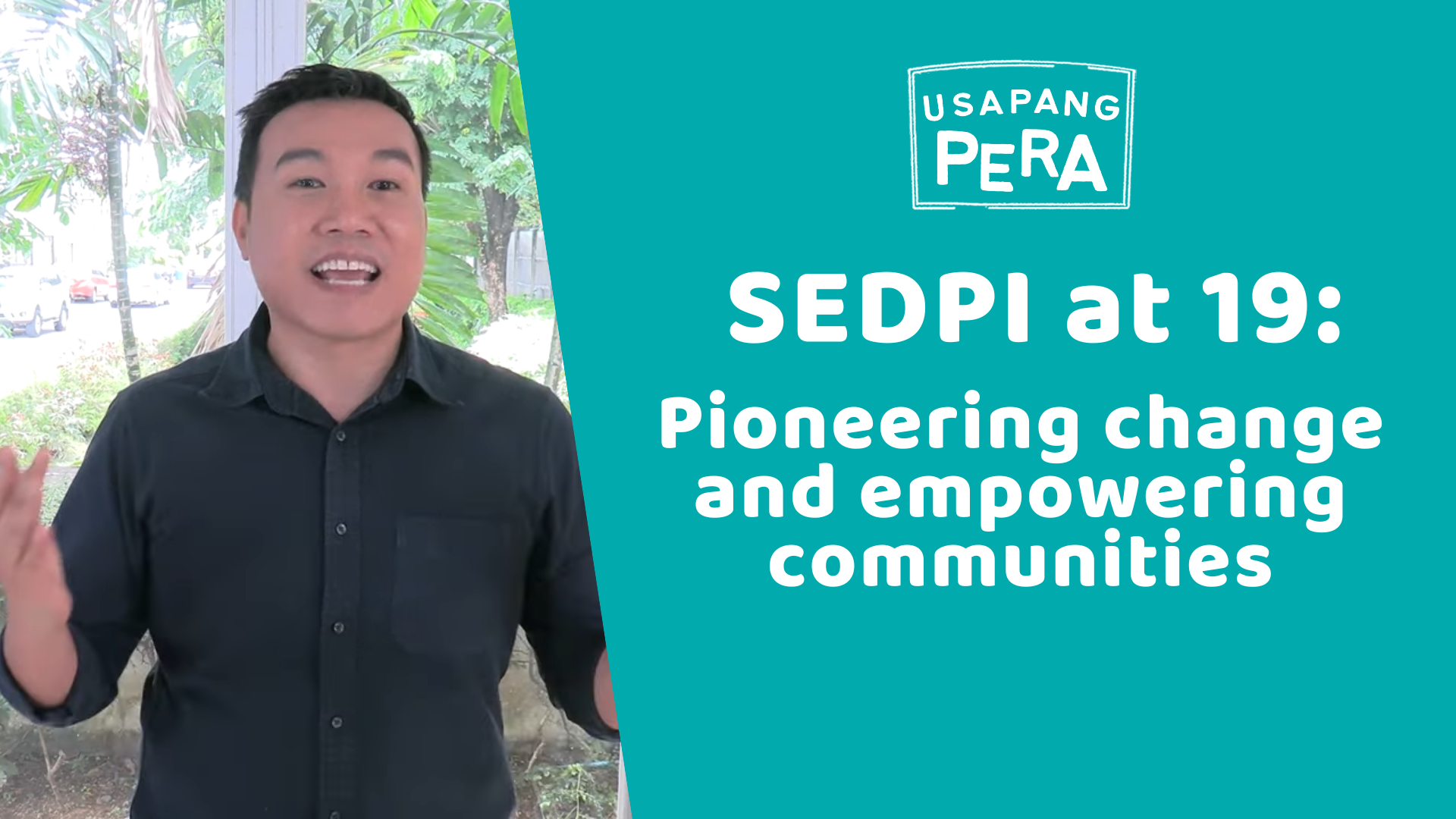
SEDPI at 19: Pioneering change and empowering communities
Warm greetings to you all. It fills me with immense joy and gratitude to stand before you on this significant occasion – the 19th anniversary of the SEDPI Group and the inauguration of our new headquarters in Rosario, Agusan del Sur. It’s wonderful to see so many familiar faces and new ones alike, as we come…
-
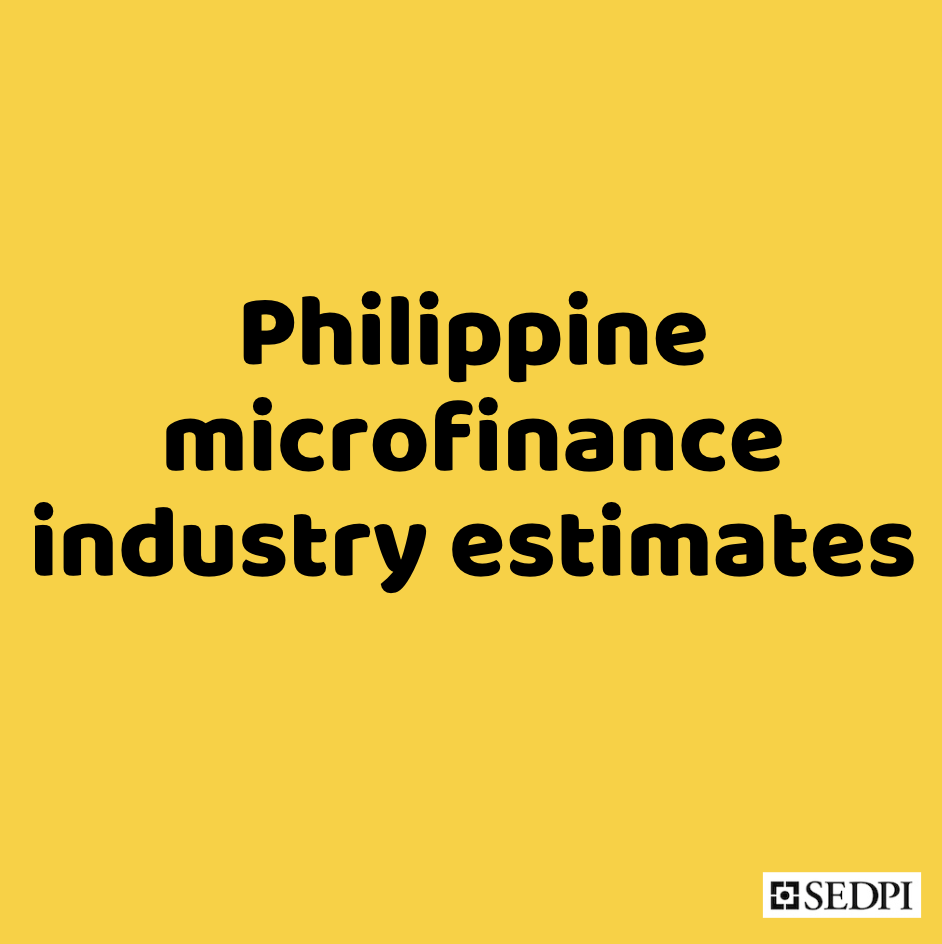
Philippine microfinance industry estimates
The Bangko Sentral ng Pilipinas (BSP) defines microfinance as the provision of a broad range of financial services such as deposits, loans, payment services, money transfers and insurance products to the poor and low-income households, for their microenterprises and small businesses, to enable them to raise their income levels and improve their living standards.[1] It is…
-
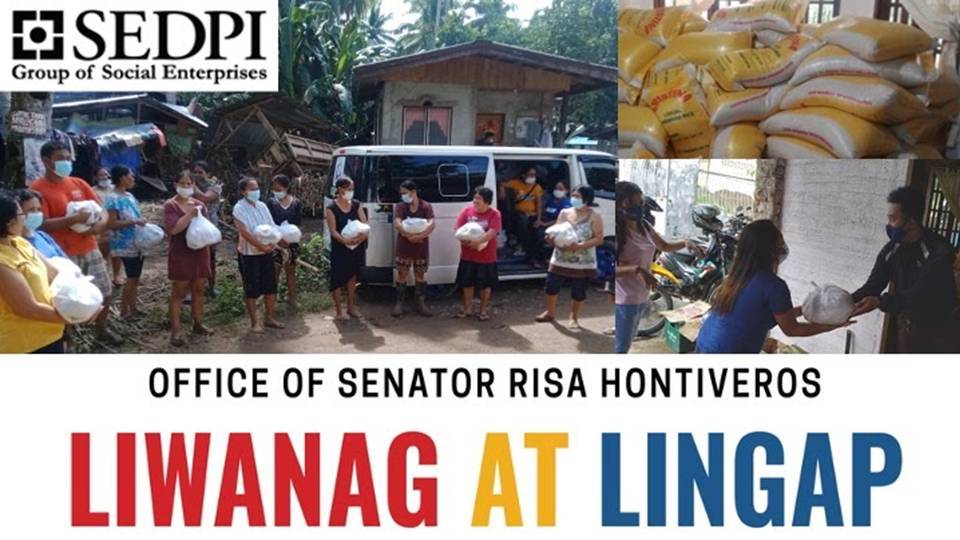
SEDPI at Opisina ni Senator Risa Hontiveros Nag-abot ng Tulong sa mga Nasalanta ng Bagyong Vicky
“Sagol nerbyos hadlok lagi kay basi manganaod kay paspas kaayo ang pag taas sa tubig og sulod kaayo.” “Magkahalong nerbyos at takot dahil baka maanod kasi mabilis ang pagtaas ng tubig at pumapasok talaga.” Ito ang naramdaman ni Roxanne Amigo habang rumaragasa ang baha na dala ng bagyong Vicky. Kasama sa binaha at na-landslide ang…
-
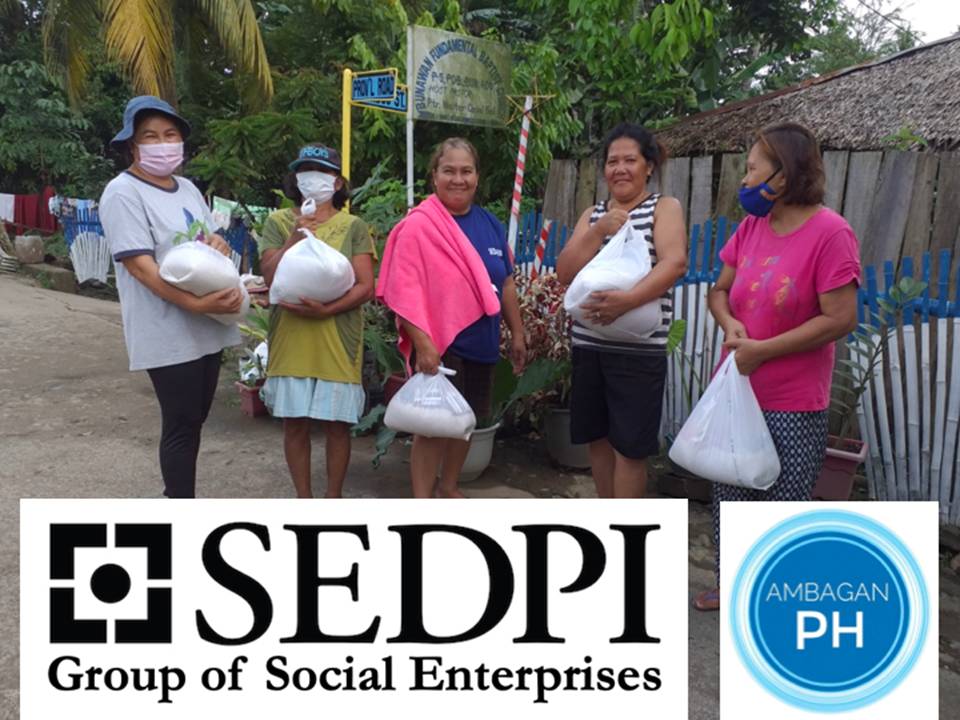
SEDPI at Ambagan PH Tumulong sa mga Nasalanta ng Bagyong Vicky
Agad na nag-abot ng tulong ang SEDPI at Ambagan PH sa 1,884 na nasalanta ng bagyong Vicky sa Agusan del Sur at Surigao del Sur. Matapos ang tuloy-tuloy na ulan na dulot ng bagyong Vicky sa Mindanao nagdulot ito ng pagbaha at landslide. Kasama sa naapektuhan ay ang mga residente ng Agusan del Sur at…
-
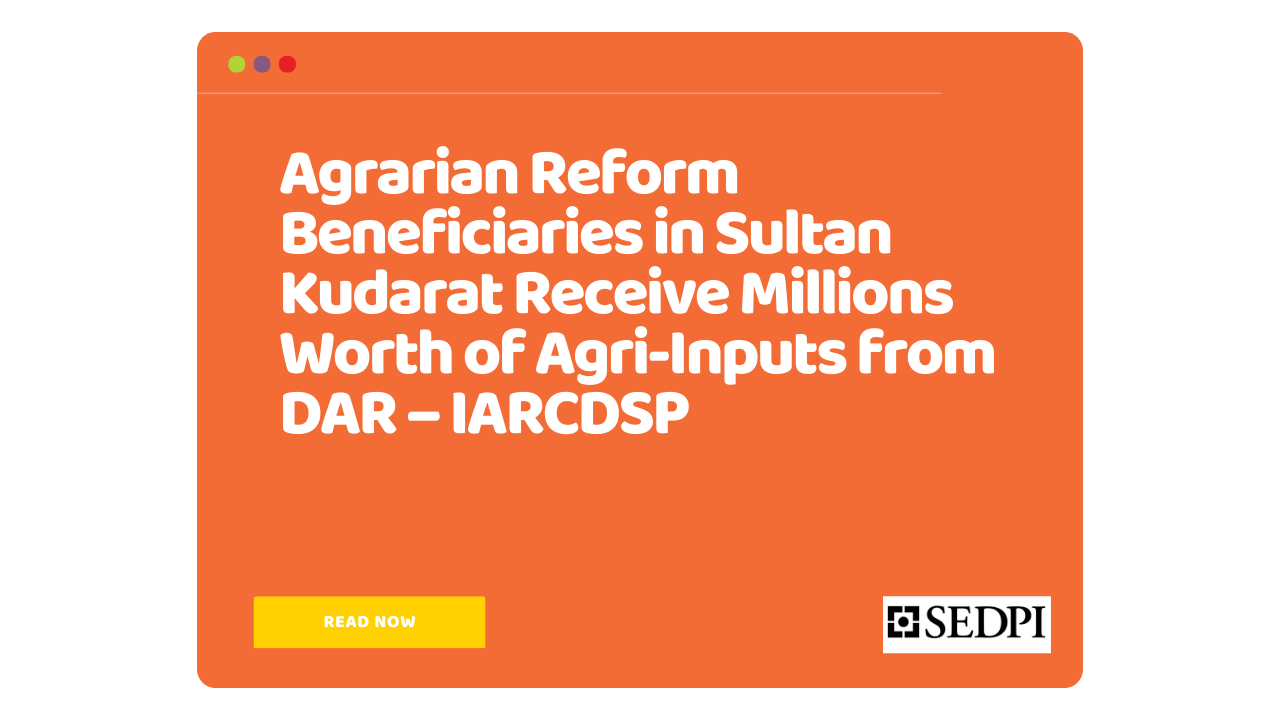
Agrarian Reform Beneficiaries in Sultan Kudarat Receive Millions Worth of Agri-Inputs from DAR – IARCDSP
Pandemic or not, farmers in Mindanao tirelessly till the soil. This is why the Department of Agrarian Reform, together with SEDPI, continue to work while majority of the population are on a standstill to bring the most awaited agri-input investments from the DAR – Italian Assistance to ARC Development Support Program (IARCDSP) to our farmers. …
-
SEDPI’s Group Yearly Renewable Term Insurance
SEDPI offers Group Renewable Term Insurance (GYRT) in partnership with CLIMBS, a service more catered to common Filipino households. Term insurance provides protection against emergencies for a specific period of time. As lifetime coverage is not always needed, term insurance provides cheaper premiums with larger benefits. On average, investment-linked insurance schemes charge PhP80,000 in premiums.…
-
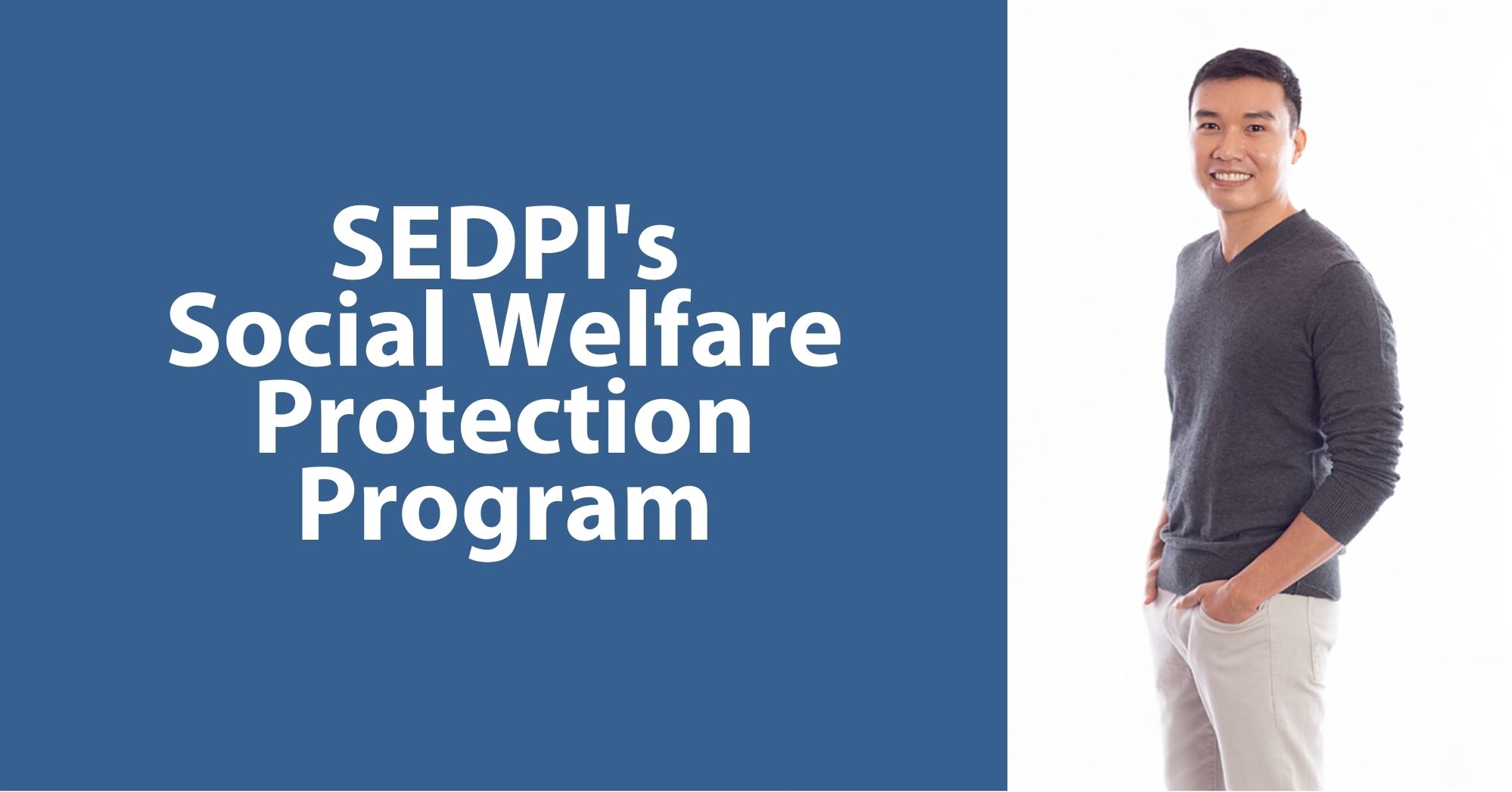
SEDPI’s Social Welfare Protection Program
SEDPI offers the Social Welfare Protection Program (SWePP), where members can avail microinsurance coverage for their families in the Philippines or themselves. SWePP is a consolidated microinsurance and social safety net program and provides security and protection to low-income SEDPI members. As a hybrid form of insurance, it adopts formal, informal, and government social insurance…